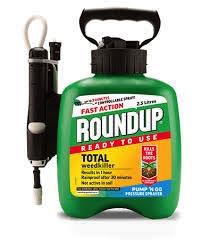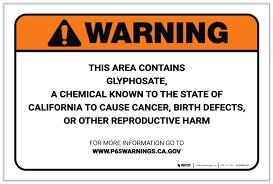 The U.S. Court of Appeals for the Ninth Circuit has affirmed a District Court grant of Summary Judgement in National Association of Wheat Growers, et al. v. Bonta. In accordance with Proposition #65, California intended to enforce a carcinogenicity label warning for glyphosate-containing herbicides. The ruling of the Ninth Circuit three-judge panel will prevent the State of California from applying a label warning. The applicants opposing the label warning represented a coalition of agricultural producers in the state.
The U.S. Court of Appeals for the Ninth Circuit has affirmed a District Court grant of Summary Judgement in National Association of Wheat Growers, et al. v. Bonta. In accordance with Proposition #65, California intended to enforce a carcinogenicity label warning for glyphosate-containing herbicides. The ruling of the Ninth Circuit three-judge panel will prevent the State of California from applying a label warning. The applicants opposing the label warning represented a coalition of agricultural producers in the state.
The decision was based on the First Amendment Rights of the manufacturers’ of glyphosate containing herbicides to be free of compelled speech.
 At issue is the widely contested 2015 designation of glyphosate as “probably carcinogenic” to humans by the International Agency for Research on Cancer (IARC). The report generated extensive civil litigation mainly directed against Bayer AG. The IARC Report was the subject of conflict-of-interest claims since the major author also served as an expert witness for Plaintiffs claiming that glyphosate was responsible for their cases of lymphoma.
At issue is the widely contested 2015 designation of glyphosate as “probably carcinogenic” to humans by the International Agency for Research on Cancer (IARC). The report generated extensive civil litigation mainly directed against Bayer AG. The IARC Report was the subject of conflict-of-interest claims since the major author also served as an expert witness for Plaintiffs claiming that glyphosate was responsible for their cases of lymphoma.
 The majority decision did however recognize the legitimate interests of the state and the Attorney General in seeking to proactively warn California citizens about a chemical they deemed to be carcinogenic. The majority decision noted, “Although commandeering speech may seem expedient, it is seldom constitutionally permissible. Considering the current vigorous debates surrounding the scientific validity of glyphosate carcinogenicity, forcing Plaintiffs to convey that message cannot be said to be an uncontroversial proposition. Because Proposition #65 warnings are narrowly drawn to advance California’s interests in protecting consumers from carcinogens, California has less burdensome ways to convey its message than to compel Plaintiffs to convey it for them.”
The majority decision did however recognize the legitimate interests of the state and the Attorney General in seeking to proactively warn California citizens about a chemical they deemed to be carcinogenic. The majority decision noted, “Although commandeering speech may seem expedient, it is seldom constitutionally permissible. Considering the current vigorous debates surrounding the scientific validity of glyphosate carcinogenicity, forcing Plaintiffs to convey that message cannot be said to be an uncontroversial proposition. Because Proposition #65 warnings are narrowly drawn to advance California’s interests in protecting consumers from carcinogens, California has less burdensome ways to convey its message than to compel Plaintiffs to convey it for them.”

The proposed Proposition #65 warning applying to glyphosate was regarded as unconstitutional and accordingly, the Ninth Circuit affirmed the judgment and injunction of the District Court.
In a related matter the European Union has extended the licence for glyphosate for an additional 10 years based on scientific evidence and value of the herbicide